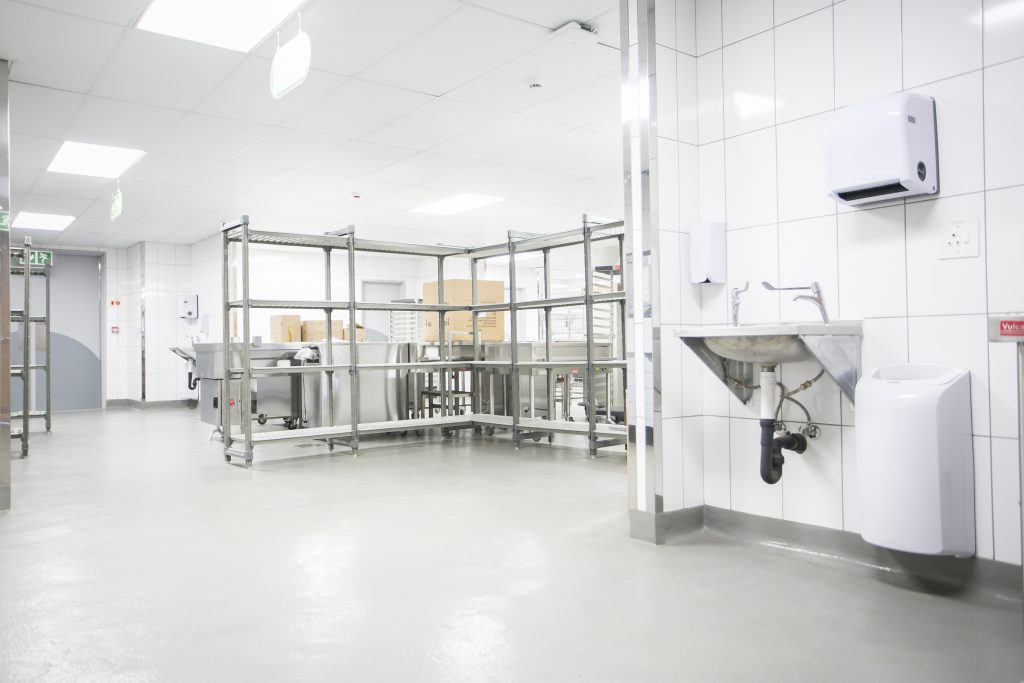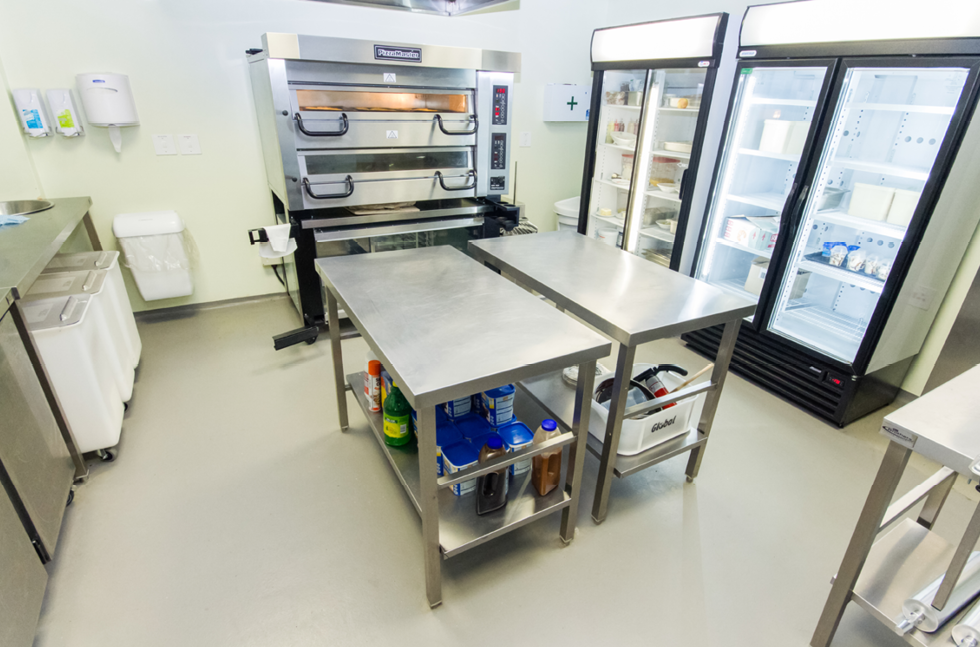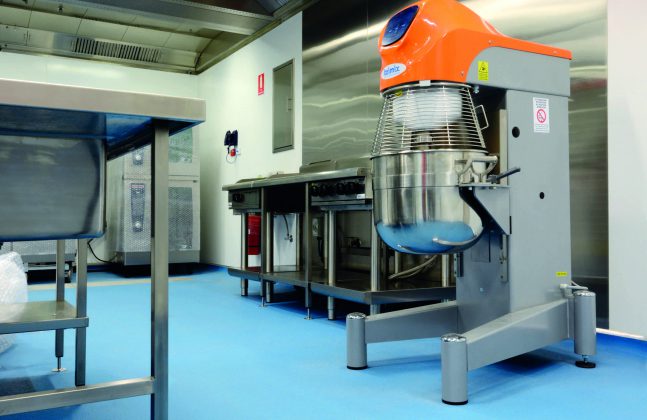When it comes to kitchen flooring requirements, hospitals are unique. Not only do they require the highest levels of hygiene, they must also meet a long list of challenging criteria set out by the healthcare industry.
Due to their open-all-day-every-day operation, the flooring choice is particularly important, as it must be able to withstand constant footfall and stress from heavy equipment and wheeled traffic. If areas are neglected or do not facilitate a sanitary working environment then patients are at risk of exposure to dangerous foodborne illnesses. To prevent this, new hospitals are applying seamless, polyurethane finishes thanks to their quick and easy to clean properties combined with the potential to add an antimicrobial agent that attacks bacteria and pathogens in contact with the kitchen’s floor.
The hygienic benefits of this seamless flooring material, combined with its longer lifecycle, has made high performance polyurethane systems a popular choice for the kitchen and canteen areas of hospitals, replacing the traditional tiled floors that can harbour bacteria in hard to clean grout lines. The number of modern hospitals now using these polyurethane systems attests to the success of this type of flooring in meeting the challenging requirements set by the healthcare industry.
We’ve selected three modern hospitals that are leading the way with antimicrobial polyurethane kitchen floors:
-
Nelson Mandela Children’s Hospital, Johannesburg

Nelson Mandela Children’s Hospital in Johannesburg applied 1,600m2 of the robust polyurethane resin floor screed Flowfresh RT in its kitchen, laundry and food storage area.
The $70 million children’s hospital applied 1,600 m2 of the robust, polyurethane resin floor screed Flowfresh RT in the site’s kitchen, laundry and food storage areas. A hardwearing floor was imperative for these sections of the site, as a 200-bed hospital with 600 doctors and nurses, serving nearly 450 million children, would inevitably result in a lot of strain and wear on floors in these service areas. The hospital’s designers realised that a lower standard of flooring would be harder to clean and could crack, increasing the risk of bacteria build up, this would inevitably cause delays and disruptions that could put lives at risk. The hygienic, polyurethane system was the obvious choice to maximise the ability to provide successful healthcare in this vital, lifesaving environment.
-
Ahmed Al-Kadi Private Hospital in Mayville, Durban

The brand new Ahmed Al-Kadi Private Hospital in Mayville, Durban, specified high performance floors from Flowcrete South Africa for its kitchen facilities to ensure that this critical part of the site would maintain an ultra-hygienic and contaminant-free environment.
This new private hospital specialising in the provision of cutting-edge medicines also opted to apply Flowfresh RT in its kitchens and body layout rooms. An impressive 514 m2 of the HACCP International certified system in light grey was installed in the 164-bed hospital. This Flowfresh system exemplifies the commitment to utilising modern technology to improve hospital design, as it incorporates the silver-ion based bactericidal agent Polygiene®, which is able to eliminate 99.9% of bacteria in contact with the floor.
-
Fiona Stanley Hospital, Perth, Western Australia

The $2 billion Fiona Stanley Hospital had an ultra hygienic floor installed that meets its ethos of utilising state-of-the-art technology to provide a world-class medical facility.
Western Australia’s new flagship health facility has installed an innovative, antimicrobial floor to ensure a sanitary, contaminant-free environment in its catering areas. The $2 billion hospital is the largest building project ever undertaken by the state government and will use the latest scientific, technological and medical developments to provide a comprehensive suite of clinical, research and education services.
In order to safeguard the wellbeing of the hospital’s patients and staff, pioneering design ideas have been incorporated, alongside the installation of the most advanced medical equipment and technology, including 1,120 m² of seamless resin flooring (Flowfresh SR) which was installed in the patient catering facility over a 6-week period and was applied in both 4mm and 6mm thickness.
No matter where in the world – hospital flooring plays a vital and fundamental role in creating a positive and safe environment for patients. If you would like to learn more about ultra hygienic floor finishes that are up to the task at hand, please leave a comment at the bottom and we’ll put you in touch with a nearby flooring expert.





